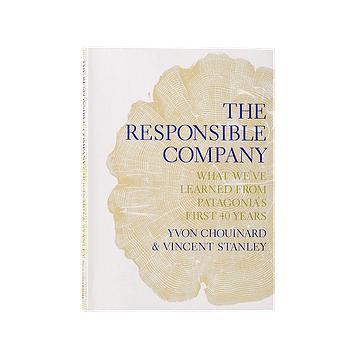The tech industry originally made its name by being different than Wall Street - it’s a place where people can make money but simultaneously eschew the conventions of dress code and corporatism in favor of something more grand — the chance to change an industry (or dare I say, even the world).
I recently read an article about how Silicon Valley has betrayed some of the traditional values that made it great. In the article, Bill Davidow argues, “the valley is no longer as concerned about serving the customer, and even sees great opportunity in exploitation. We are beginning to act like the bankers who sold subprime mortgages to naïve consumers. In such an environment, we are less likely to create the role models of the past who guided the valley to its future."
 This is a pretty controversial statement, but Davidow makes a good point. He goes on to say that “Lock-in creates dominant players — witness Google, Facebook, Microsoft. And in this monopoly-driven environment, customers get exploited." That somewhat true [but overly simplistic] analysis is certainly consistent with sentiment toward Wall Street. Two recent examples of Wall Street’s attitude towards customers come to mind: the Libor scandal, and the recent lawsuit involving Goldman Sachs and Dragon software. In both cases, bankers are characterized with attitudes of putting their own interests (growth, getting paid, etc.) ahead of those of their customers. “We guided them to a completed transaction" at first seems like bankers are doing their jobs (technically, they are), but such a mindset is one of the reasons we equate Wall Street banks with "blood sucking vampire squids."
This is a pretty controversial statement, but Davidow makes a good point. He goes on to say that “Lock-in creates dominant players — witness Google, Facebook, Microsoft. And in this monopoly-driven environment, customers get exploited." That somewhat true [but overly simplistic] analysis is certainly consistent with sentiment toward Wall Street. Two recent examples of Wall Street’s attitude towards customers come to mind: the Libor scandal, and the recent lawsuit involving Goldman Sachs and Dragon software. In both cases, bankers are characterized with attitudes of putting their own interests (growth, getting paid, etc.) ahead of those of their customers. “We guided them to a completed transaction" at first seems like bankers are doing their jobs (technically, they are), but such a mindset is one of the reasons we equate Wall Street banks with "blood sucking vampire squids."
Quick pivots, data driven decision-making, and Facebook’s Open Graph can open a world of possibilities among startups. I’d argue that such tools aren’t inherently good or evil — they exist to be used however companies choose to use them. However, the communities we develop with these tools do often end up with a conscience. Reddit’s community almost certainly made it a longer term success than Digg. Even though it wasn’t a giant financial outcome, reddit avoided the issues of Digg (overly rapid growth without proper community) by focusing on the long term and only employing tools for growth when they were right for their community/customers. Alexis and Steve were comfortable with an exit that allowed them to keep building and preserved the longer term vision of what Reddit was about. In the end, they’re the ones bigger than ever, and Digg just got sold in a firesale.
Take Facebook’s Open Graph: Socialcam was able to leverage the open graph to snatch the #1 Facebook application spot in just a few short months. Traffic has supposedly plateaued recently and some even indicate that usage of the app is down. Today, news hit the wire that Socialcam sold for $60M to Autocad. While this outcome appears to be tremendous for the founders and early investors in Socialcam (congrats to all of them), many will infer that this exit was almost entirely predicated on the large user base Socialcam was able to attract using the Open Graph. A number of founders will now to look to Open Graph not as a way to connect with the *right* users in a way that is meaningful, but rather as a tool that might help them flip their company for a big payday.
 When too many high profile companies use tools like data, the Open Graph, or others to extract value from customers at the expense of building lasting value, we cheapen the value proposition of the tech industry as a whole (especially relative to finance). Now, more than ever, it’s important for us to set the example in tech of how companies can be responsible.
When too many high profile companies use tools like data, the Open Graph, or others to extract value from customers at the expense of building lasting value, we cheapen the value proposition of the tech industry as a whole (especially relative to finance). Now, more than ever, it’s important for us to set the example in tech of how companies can be responsible.
As a VC, I can imagine it is difficult to balance the need to return your investors’ capital in a relatively short timeframe with the fact that may be at odds with what is right for the business in the long term. Similarly, as a founder, it’s probably easy to go for use number growth at the expense of real community/engagement to generate hype and valuation bumps faster than the competition. Sure, it may net you a quick exit and create an illusion of value, but it’s not something that benefits people outside the tech ecosystem in the long term. Isn’t that why so many of us “dreamers and doers" are here to begin with?

Comments